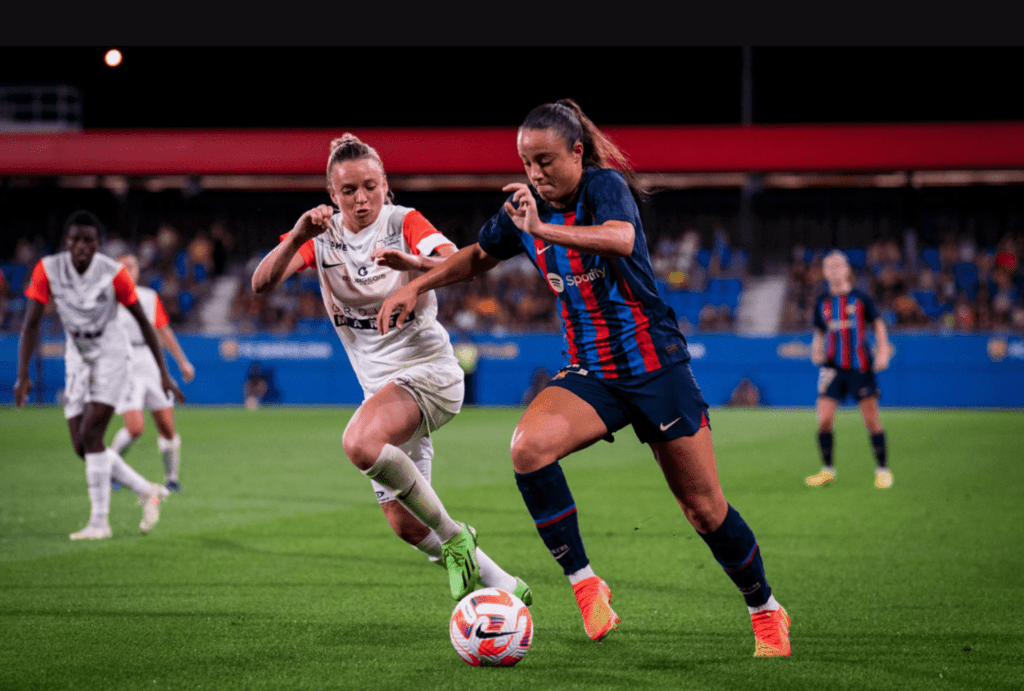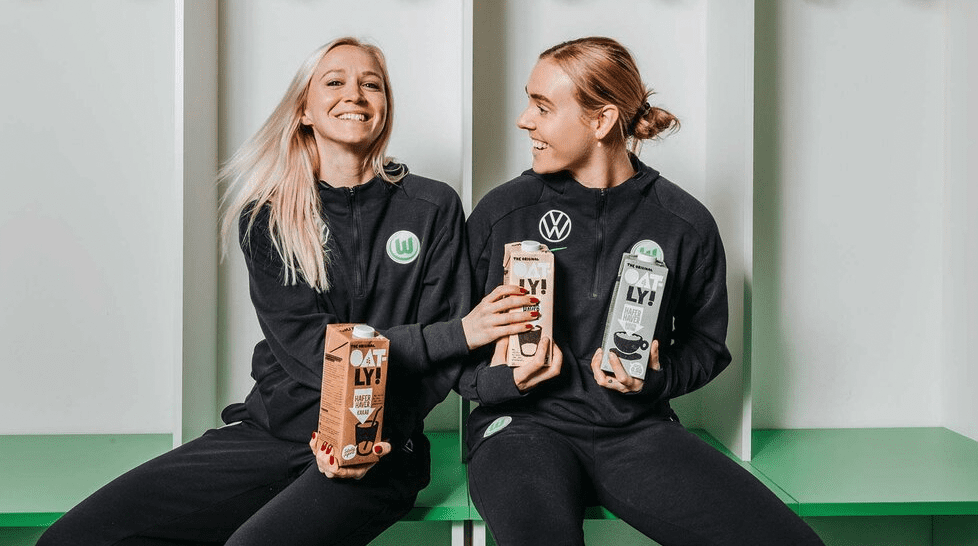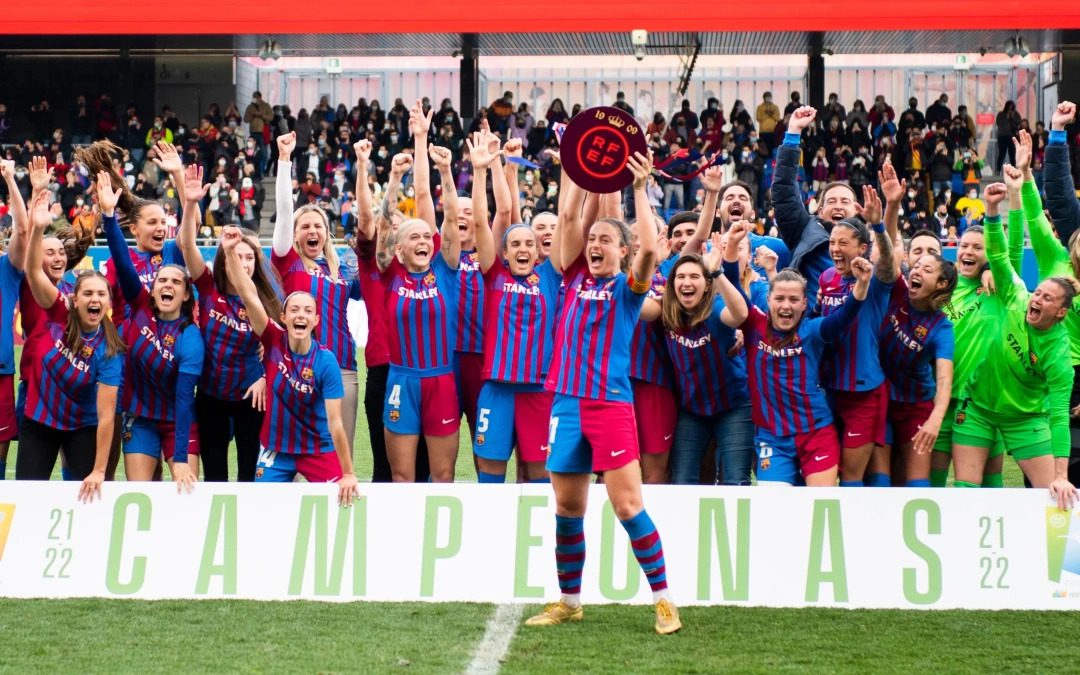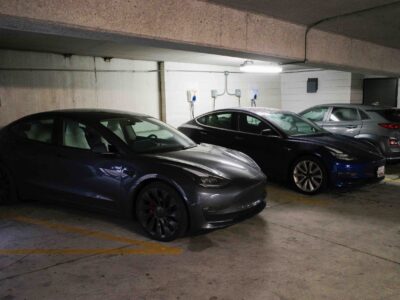As more major soccer clubs adopt sustainability, all facets of the businesses are expected to buy into these initiatives. This participation includes the other groups that play for the club, like the youth academy, U-23, and the women’s teams. FC Barcelona Femení, the women’s side of the famous Catalan megaclub, made headlines when they inked a sponsorship deal with plant-based food company Heura.
The deal between Barcelona Femení and Heura is a three-year agreement. The women’s team promotes plant-based foods at concessions in the Estadi Johan Cruyff, their home stadium. Meat alternatives are offered for patrons on match days, and the club will develop media content to educate fans about the benefits of sustainable, eco-friendly dieting.
LED logos for Heura appeared on screens and advertising boards around the pitch, and the sponsorship debuted with a friendly against French side Montpellier in August 2022. A partnership between a rising player in the plant-based food industry with a decorated champion of Spain and Europe is the perfect opportunity for more exposure and education about the company’s products.

Heura is growing fast in Europe’s plant-based market, and when it was searching for a team to sponsor, it wanted an unconventional one.
“Innovation, determination, and non-conformism are just some of the traits we admire about the FC Barcelona Women’s team, and why we wanted to partner with such an aspirational team of elite athletes, nutritionists, and trainers,” said Marc Coloma, CEO of Heura Foods, in a statement.
The company believes that partnering with a non-traditional soccer outlet would send a message to consumers that Heura is not like other firms. The team and business also hope this expands coverage of women’s football in Europe.
Barcelona Femení’s deal follows a plant-based trend of other women’s soccer clubs across Europe and the world.
In March 2022, German women’s champions Vfl Wolfsburg struck an agreement with Swedish company Oatly to provide dairy-free milk products for the team’s meals and fans during match days. This agreement with Oatly and Wolfsburg is part of the club’s Race to Zero initiative, where Wolfsburg hopes to achieve climate neutrality and net zero emissions by 2025.
“Alongside VfL Wolfsburg, we want to draw attention to sustainable nutrition,” said Helge Weitz, Oatly general manager, in a news release. “We’re thrilled that the club has decided to make not only the stadiums dairy-free but the teams as well. This sends an important message to the football world and the general public.”

These strategic partnerships engage the public interest with an old marketing trick that has withstood the test of time: if your favorite athletes are doing something, you can do it, too. In the U.S., women’s national team superstar Alex Morgan adopted plant-based dieting for higher energy levels and better recovery time. The vegan trend is going strong, and more players are likely to take it up as innovations in nutritional science increase.
These sponsorship deals also occur during rapid growth for women’s professional soccer. According to Deloitte’s Annual Review of Football Finance, 2021–22 saw viewership of the English Women’s Soccer League increase by 285% in the first year of its Sky Sports and BBC broadcast deals. These teams have unique identities, fanbases, and business models, completely different from the men’s game.
Barcelona and Wolfsburg’s plant-based company sponsorships are just the beginning. In the coming years, we will likely see more women’s and men’s soccer teams agree to similar deals.





